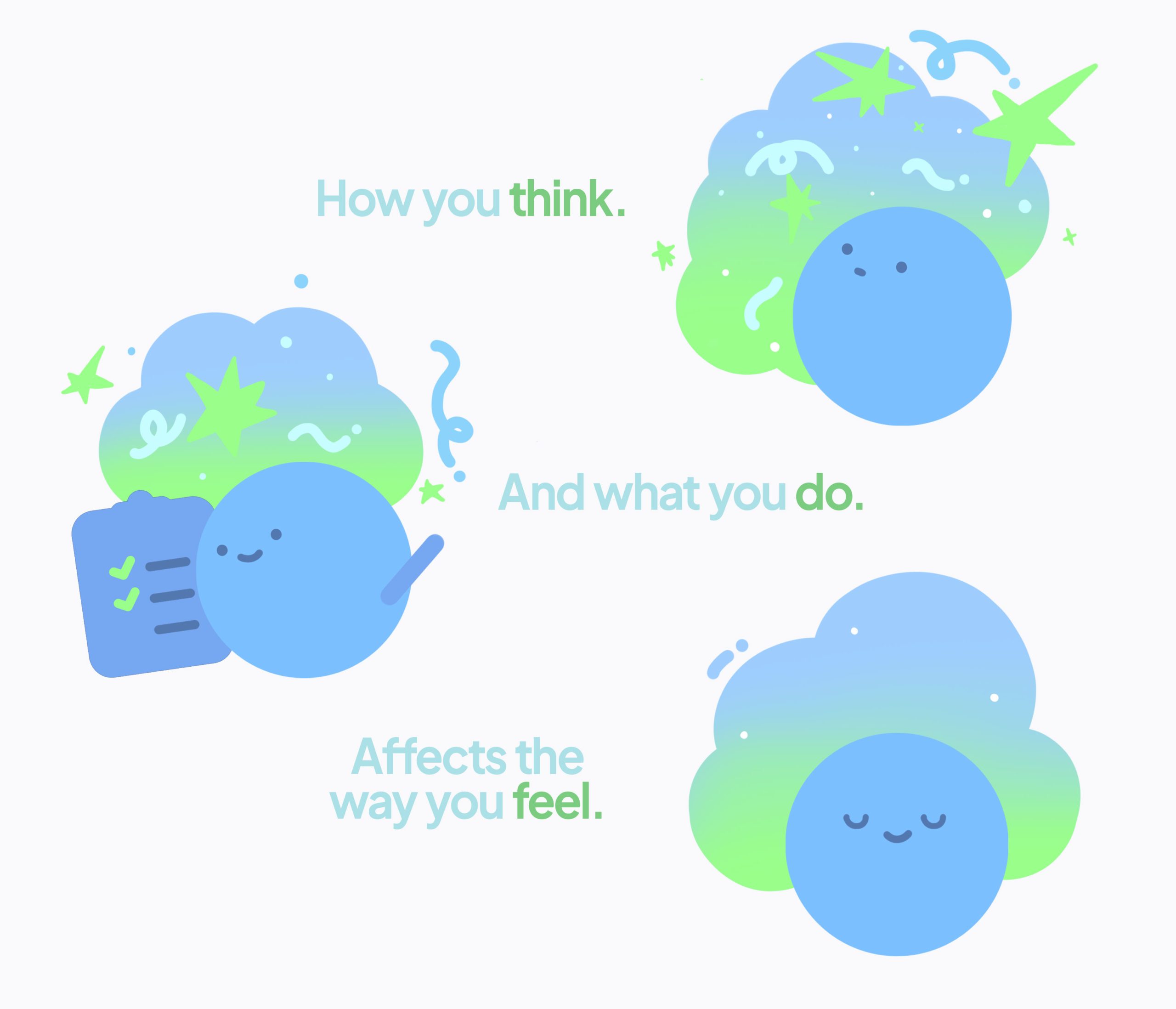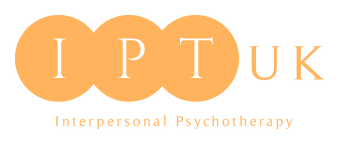CBT in Maidstone
CBT is a type of talk therapy rooted in the understanding that our thoughts, feelings, actions, and behaviours are interconnected. When we experience distress, we often fall into negative thinking patterns that exacerbate our emotional struggles. CBT aims to identify and change these unhelpful patterns, empowering individuals to improve their mental well-being.
Whether you’re facing major life changes, coping with long-term health conditions, or battling anxiety and depression, CBT can provide valuable support. Recommended by the National Institute for Health and Clinical Excellence (NICE), CBT offers effective strategies for managing a wide range of psychological challenges.
Let’s consider a typical scenario: someone grappling with depression or anxiety may find themselves caught in a cycle of negative thoughts and behaviours that perpetuate their distress. CBT helps individuals recognise these patterns and equips them with tools to break free from the cycle, fostering lasting positive change.

Cognitive Behavioural Therapy Service
At IC Therapies, we take a collaborative and active approach to our Cognitive Behavioural Therapy service. Rather than positioning the therapist as an authority figure, we view therapy as a journey of exploration where both therapist and client work together towards healing and growth. Our goal is for clients to become their own therapists, applying CBT strategies autonomously in their daily lives.
During sessions, clients actively engage in therapeutic exercises and experiments designed to challenge and reshape their thinking and behavior. These sessions typically last 50 minutes and can be conducted online, via telephone, or in person, according to the client’s preference.

CBT is a time-limited treatment, with sessions ranging from 6 to 20 weeks. However, the pace and duration of therapy are tailored to each individual’s needs and progress. Regular progress reviews ensure that therapy remains effective and aligned with the client’s goals.
To maximize the benefits of CBT, clients are encouraged to actively participate in between-session “homework” assignments. These tasks may involve practicing new skills or reflecting on experiences to bring to the next session. While therapy may present challenges, our dedicated team at IC Therapies is committed to supporting clients every step of the way.
Are you ready to embark on a journey towards happiness and fulfillment? At IC Therapies our CBT service in Maidstone, Kent, offers a beacon of hope for those seeking relief from emotional distress. Together, we’ll explore new ways of thinking that will empower you to lead a richer and more satisfying life.
Remember, change takes time and effort, but with dedication and support, you can overcome obstacles and unlock your full potential. Take the first step towards a brighter future – reach out to IC Therapies today and start your transformative CBT journey.
Extensively researched and proven effective, CBT serves as a valuable tool in treating an array of mental health conditions, including but not limited to:
CBT is also instrumental in assisting individuals with chronic health conditions such as irritable bowel syndrome (IBS), chronic fatigue syndrome (CFS), fibromyalgia, and chronic pain. While it may not alleviate the physical symptoms of these conditions, CBT equips individuals with invaluable coping strategies to better manage their symptoms and enhance their overall quality of life.
During these sessions, we will collaborate with you to dissect your problems into manageable components, including thoughts, physical sensations, and actions. Together, we analyse these facets to identify any unrealistic or unhelpful patterns and explore their interplay and impact.
Following this analysis, we guide you in developing strategies to challenge and modify negative thoughts and behaviours. Between sessions, we will encourage you to practice these strategies in daily life and discuss your progress during subsequent sessions. The ultimate objective of CBT is to equip you with the skills to independently apply these techniques to effectively manage any problems, even after therapy concludes.
Cognitive Behavioural Therapy (CBT) stands as a structured and evidence-based approach to managing diverse mental health challenges. By empowering you to challenge negative thought patterns and adopt healthier behaviours, CBT serves as a valuable tool in promoting long-term well-being. Please feel free to get in touch and find out more information if this sounds like the right course of action for you.
CBT Case Study
When Mike sought help at the age of 46, it was during a challenging period. The pandemic had resulted in a job loss, leaving him feeling anxious and depressed about his finances and future. Understandably, he felt overwhelmed, experiencing hopelessness and self-doubt, which impacted his relationships and daily activities. Upon assessment, his symptoms were consistent with severe depression.
Throughout our sessions, Mike was supported in understanding how these difficulties may have developed and the current processes that contribute to maintaining his depression. Together, we uncovered how self-criticism and negative thinking patterns fuelled his anxiety and depression. Using supportive and evidence-based techniques, we began to gain insights into Mike’s depression. Psychoeducation on depression was provided, and the cognitive model of depression was shared with Mike. We took a gradual, step-by-step approach to exploring negative thinking patterns and formulating behavioral experiments to challenge negative thoughts. Mike gradually began to develop alternative, more balanced thinking that helped him start feeling better.
Through tailored strategies, we helped Mike gradually rekindle his joy in private leisure activities he once loved. We discussed problem-solving strategies to reduce worries about finances. Witnessing his mood improve with each step, he consistently applied the learned techniques. He started to reconnect with friends and family, as well as rediscovering leisure pursuits. As he concluded his CBT treatment, Mike expressed feeling positive. He reported improvements in his mood and had started to search for new job opportunities. He reported feeling more hopeful about the future. Upon discharge, Mike’s anxiety and depression symptoms had significantly improved. He completed 16 sessions of CBT.



